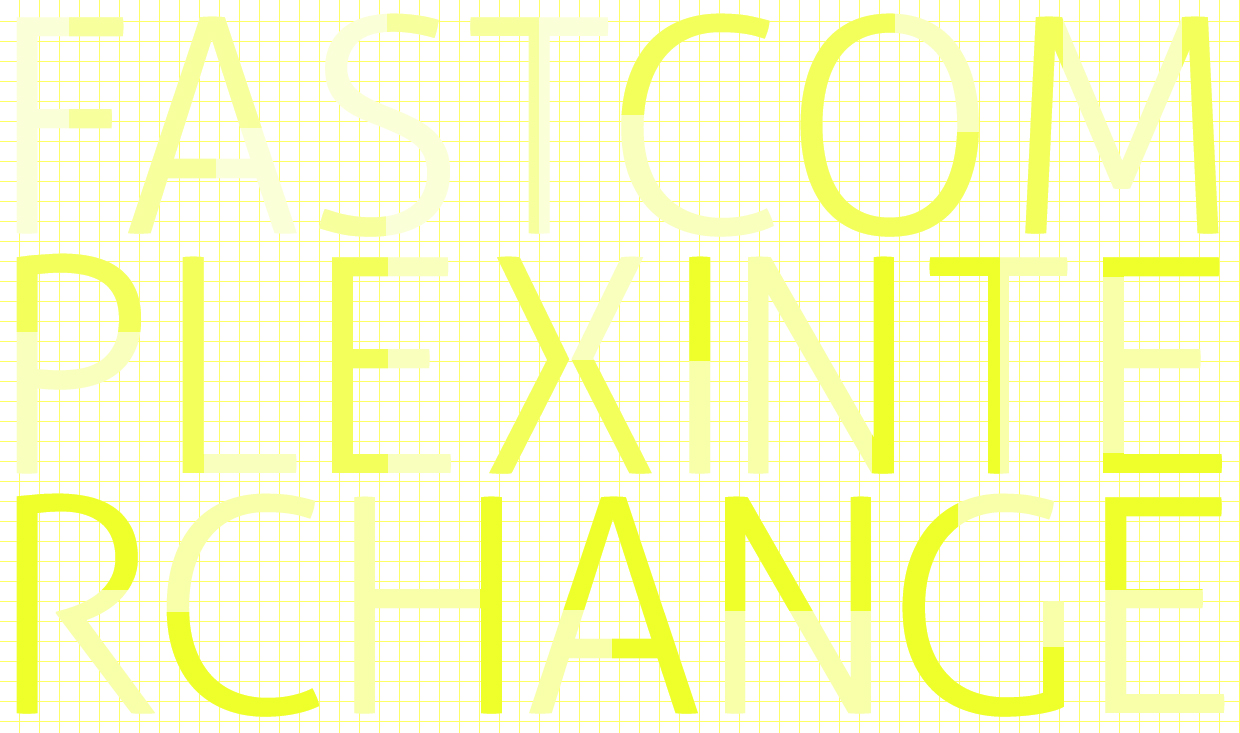
I’ve been thinking about these words a lot lately. I often create phrases in my mind that I feel are evocative of the zeitgeist, or at least in terms of how I’m perceiving it, anyway. When I was in college, the phrase I thought of repeatedly was “human progress landscape,” which became the title of my degree project and subsequently the name of my freelance design business. At the time, I was obsessed with how our human notion of progress was shaping both our geography and the landscape of technology in which we were spending more and more of our time. A few years later, the phrase found myself using more and more was “dystopia now.” This one had more to do with what was becoming a fearful perspective on the results of our progress- an over-engineered world moving at an unsustainable rate of progress and, in its momentum, making slaves of humanity to serve a yet-to-be-created artificial intelligence. Yes, it’s over the top and probably a bit paranoid, but it’s where my mind was at the time.
Lately, the phrase has shifted again. This time, “fast complex interchange.” I’m still exploring this one, so this post is much more the result of my outward processing than a solidified idea. Surely both “fast” and “complex” are words that may accurately describe the present times for most people. But “interchange” is a bit more obscure in meaning. It can mean simply to substitute, or put one thing in the place of another. It can refer to a junction of roads on various levels constructed to allow the flow of traffic to pass between them without interruption. It can also mean to reverse, as in changing a course of action. The word itself is complex, and it also seems to suggest speed. A quick change, rather than the gradual kind. Does this sound like today?
Think of how we receive information: It used to be much more mono-linear; an author would write a book, you would read it. A television show would be created, you would watch it. A song would be recorded, you would hear it. Of course, the delivery of these media might have varied, but the media itself remained fairly consistent. What was delivered via book stayed there. What was delivered via televison might be re-run, but it generally stayed on television. Today, this simple system has completely disintegrated. The corporeal media format of any form of information is dying, if not in many cases, dead, enabling the delivery of the incorporeal format to be much, much faster. For example, I can get just about any song or album in mp3 in seconds without having to move more than a couple of fingers of one hand. And that example is completely mundane compared to others. People already expect that immediacy.
But even amidst all of the technological gains, there are glaring issues. In fact, sometimes the more we think we’re improving a system, the more issues pop up that indicate that we have a long way to go. That old system we’re improving may end up completely replaced by something entirely new. In a rather long, but thought-provoking post titled Newspapers and Thinking the Unthinkable, Clay Shirky elaborates on this better than I could:
“We’re collectively living through 1500, when it’s easier to see what’s broken than what will replace it. The internet turns 40 this fall. Access by the general public is less than half that age. Web use, as a normal part of life for a majority of the developed world, is less than half that age. We just got here. Even the revolutionaries can’t predict what will happen.
Imagine, in 1996, asking some net-savvy soul to expound on the potential of craigslist, then a year old and not yet incorporated. The answer you’d almost certainly have gotten would be extrapolation: “Mailing lists can be powerful tools”, “Social effects are intertwining with digital networks”, blah blah blah. What no one would have told you, could have told you, was what actually happened: craiglist became a critical piece of infrastructure. Not the idea of craigslist, or the business model, or even the software driving it. Craigslist itself spread to cover hundreds of cities and has become a part of public consciousness about what is now possible. Experiments are only revealed in retrospect to be turning points.
In craigslist’s gradual shift from ‘interesting if minor’ to ‘essential and transformative’, there is one possible answer to the question “If the old model is broken, what will work in its place?” The answer is: Nothing will work, but everything might. Now is the time for experiments, lots and lots of experiments, each of which will seem as minor at launch as craigslist did, as Wikipedia did, as octavo volumes did.”


